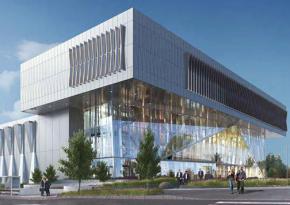The police don’t need bunkers
reports from Seattle on protests over a multimillion-dollar police station.
DOZENS OF people came out to a Seattle City Council Safety Committee meeting on June 8 to speak out against city officials' plans to build the most expensive police station in the U.S.
The $160 million police station is a slap in the face to residents of Seattle, which already spends nearly half its budget on "public safety" while allowing urgent social needs to go unmet year after year.
Members of the Seattle Black Book Club organized the protest at the City Council Safety Committee meeting. Other groups represented include Ending the Prison Industrial Complex, Earthcare not Warfare, the Green Party and others.
Plans for the new police station in North Seattle include ballistics-resistant glass with the ability to withstand a strong earthquake, as well as a parking garage and underground firing range. In a statement issued by No New Jim Crow, a group that has been organizing against mass incarceration and a new youth jail that was planned for Seattle, activists asked:
Why build a bunker? Are the police under siege? Have police stations been bombed or even attacked with guns? No. In fact, overall homicides against police across the U.S. have gone down, while police killing of civilians, many unarmed, have gone up over the last several years.

Speakers at the event addressed the Seattle Police Department's record of racism and excessive use of force--which made the SPD the target of a Justice Department review.
They also called on Seattle officials to change their backward priorities, listing what could be done with $160 million that is being wasted on the police station. As the No New Jim Crow activists point out:
What could $160 million do for Seattle's real social problems? It could build at least 1,600 units of low-income housing, to take 3,200 people off the street. It could hire 3,200 teachers to lower class sizes in some of the most crowded schools in the U.S. It could provide decent jobs to thousands of low-income workers.
It could hire construction workers to re-build Seattle's crumbling roads and bridges. It could provide solar panels to 8,000 homes in Seattle to fight global warming. It could provide more, better and cheaper bus service to thousands and community-based addiction treatment staffed by paid peer counselors with real-life experience.
Activists will have to keep up the pressure to demand that Seattle officials change their priorities.


